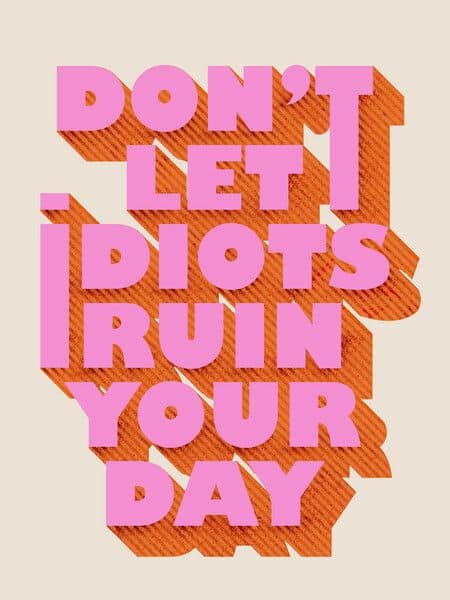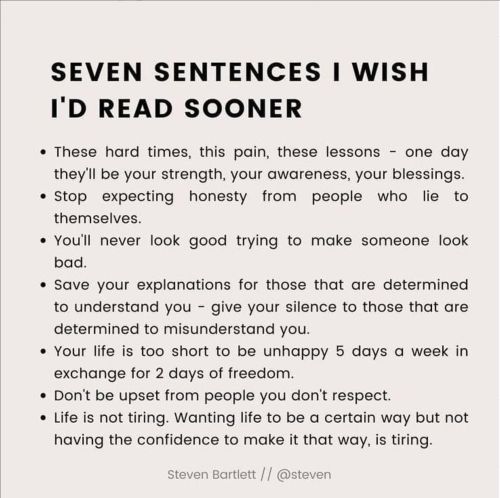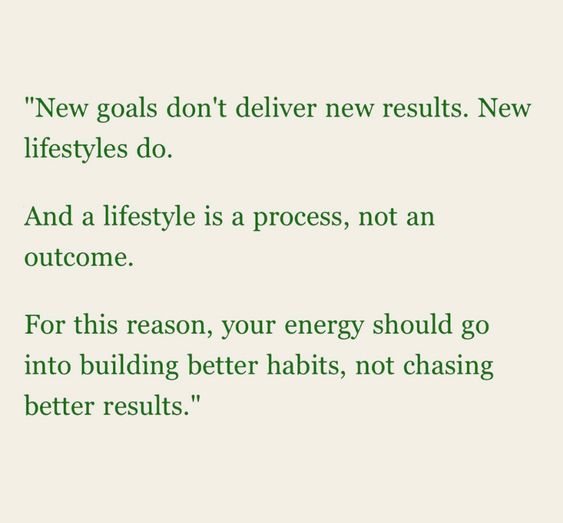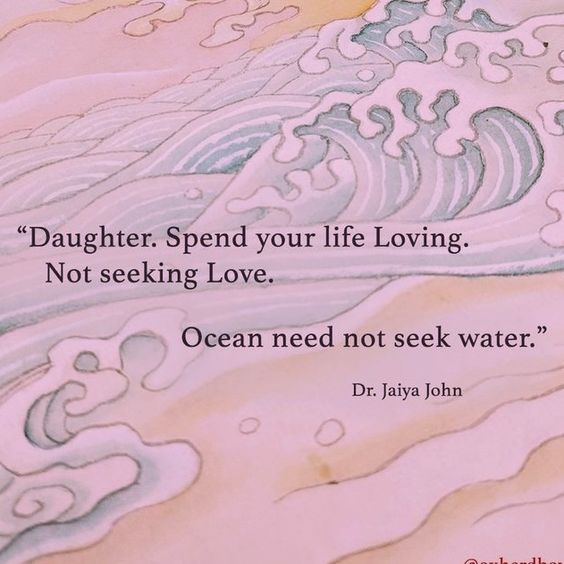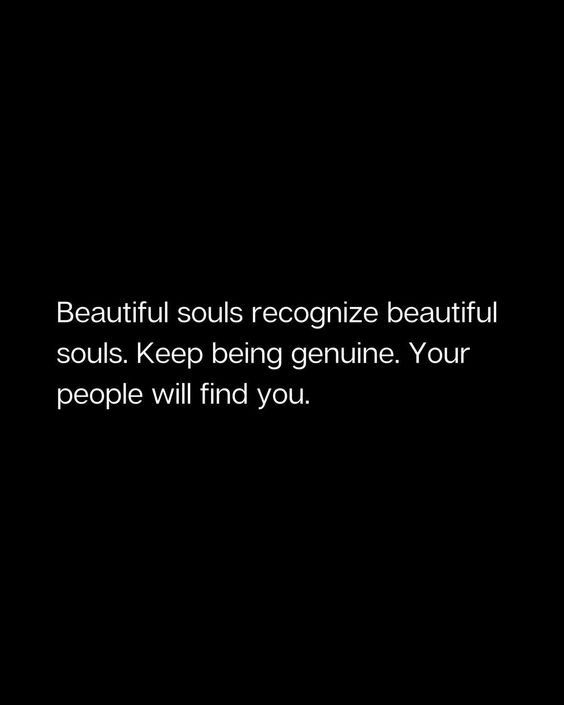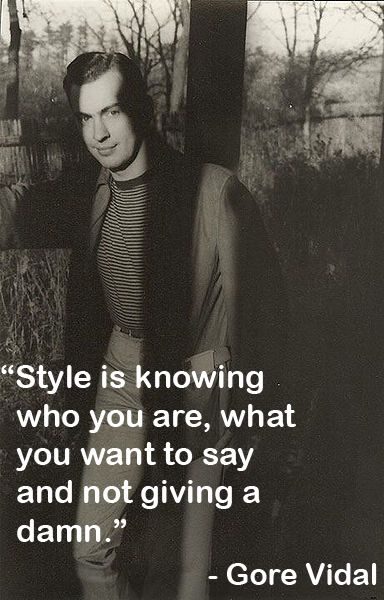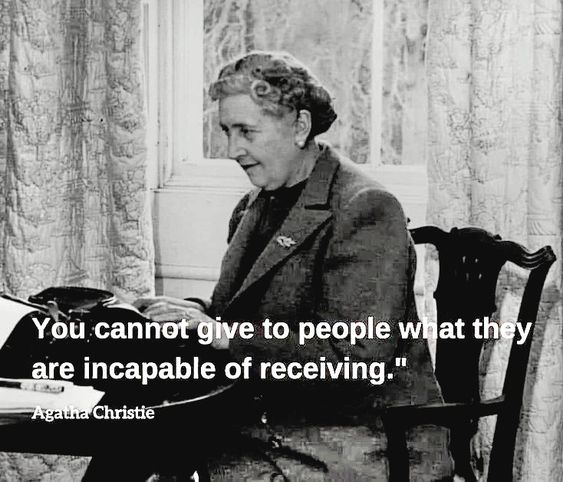“The pursuit of success can be a catalyst for failure. Put another way, success can distract us from focusing on the essential things that produce success in the first place.”
Greg McKeown, Essentialism (Page 13)
“If you don’t prioritize your life, someone else will.”
Greg McKeown, Essentialism (Page 10)
“Problems, by definition, have solutions. You might not like the cost of the solution, the trade-offs it leads to, or the time and effort it takes, but problems have solutions. On the other hand, situations don’t. Situations are simply things we need to live with. Once we realize that a problem we have isn’t a problem at all, but actually a situation, it’s easier to do our best to move on and thrive. Focusing on a situation is usually a source of stress, not a way forward.”
Seth Godin
“The way of the Essentialist means living by design, not by default. Instead of making choices reactively, the Essentialist deliberately distinguishes the vital few from the trivial many, eliminates the nonessentials, and then removes obstacles so the essential things have clear, smooth passage. In other words, Essentialism is a disciplined, systemic approach for determining where our highest point of contribution lies, then making execution of those things almost effortless.”
Greg McKeown, Essentialism (Page 7)
“Essentialism is not about how to get more things done; it’s about how to get the right things done. It doesn’t mean just doing less for the sake of less either. It is about making the wisest possible investment of your time and energy in order to operate at our highest point of contribution by doing only what is essential.”
Greg McKeown, Essentialism (Page 5)
“To know means to accumulate, to collect information, to collect data. It does not change you—you remain the same; just your collection of information becomes bigger and bigger. Wisdom transforms you. It is really in-formation, not just ‘information’—it forms your inner being in a new way. It is transformation. It creates a new quality of seeing, knowing, being. So it is possible for a person to be not at all informed and yet be wise. It is also possible for a person to be very much informed and still be very unwise.”
Osho, Everyday Osho (Page 110)
“The way of the Essentialist is the relentless pursuit of less but better.”
Greg McKeown, Essentialism (Page 5)
“Only once you give yourself permission to stop trying to do it all, to stop saying yes to everyone, can you make your highest contribution towards the things that really matter.”
Greg McKeown, Essentialism (Page 4)
Essentialism [Book]
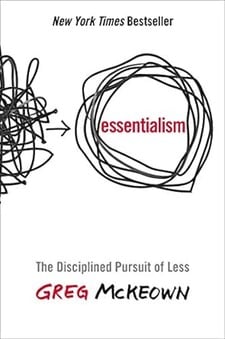
Book Overview: Essentialism is more than a time-management strategy or a productivity technique. It is a systematic discipline for discerning what is absolutely essential, then eliminating everything that is not, so we can make the highest possible contribution toward the things that really matter. By forcing us to apply more selective criteria for what is Essential, the disciplined pursuit of less empowers us to reclaim control of our own choices about where to spend our precious time and energy—instead of giving others the implicit permission to choose for us. Essentialism is not one more thing—it’s a whole new way of doing everything. It’s about doing less, but better, in every area of our lives. Essentialism is a movement whose time has come.
Post(s) Inspired by this Book:
23 Greg McKeown Quotes from Essentialism and How To Live Better Via Less
“What makes life worth living? No child asks itself that question. To children life is self-evident. Life goes without saying: whether it is good or bad makes no difference. This is because children don’t see the world, don’t observe the world, don’t contemplate the world, but are so deeply immersed in the world that they don’t distinguish between it and their own selves.”
Karl Ove Knausgard, Autumn
